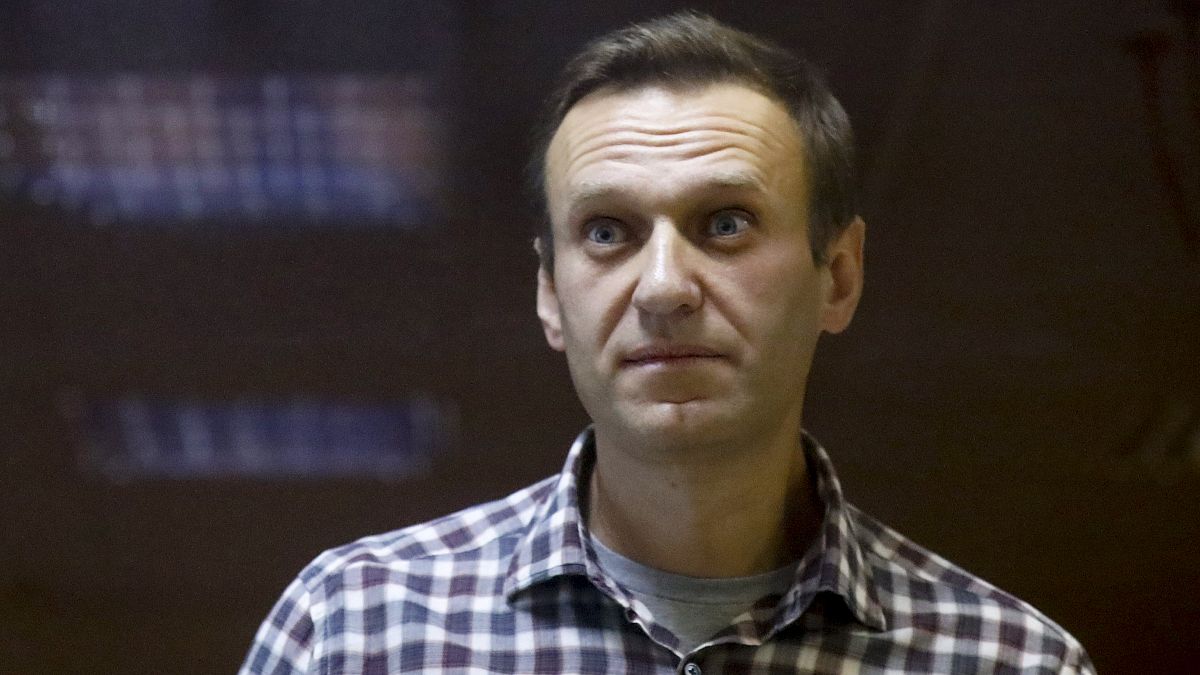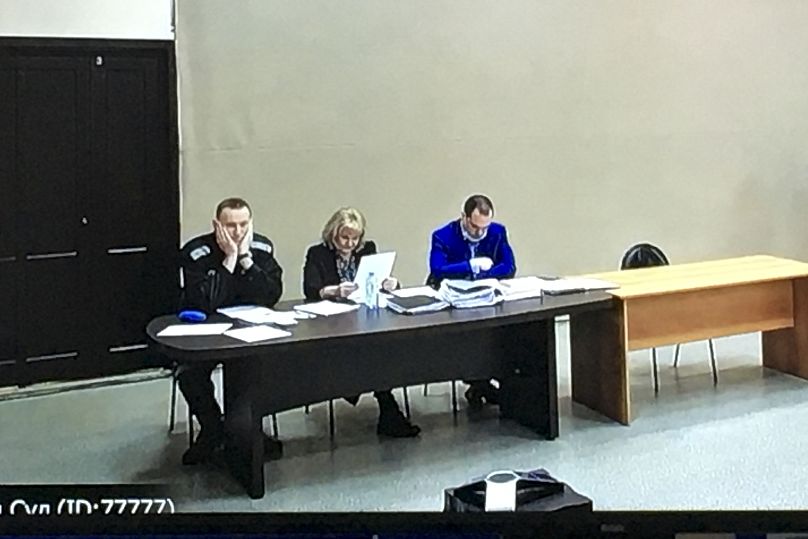The Kremlin critic says the charges against him are politically motivated.
Russian prosecutors have called for opposition leader Alexei Navalny to be imprisoned for 13 years in a maximum-security prison.
Navalny -- a key critic of Russian President Vladimir Putin -- has been charged with fraud and contempt of court.
The Russian prosecutor's office has accused him of embezzling money that he and his anti-corruption foundation raised over the years.
Navalny is also alleged to have insulted a Russian judge during a previous hearing. He has rejected the allegations as politically motivated.
In their closing arguments on Tuesday, prosecutors demanded a 13-year prison sentence in a maximum-security detention centre, as well as a 1.2 million rouble (€9,900) fine.
The Kremlin critic is already serving two-and-a-half years in a penal colony east of Moscow, and Russia's opposition sees the trial as an attempt to keep Navalny in prison for as long as possible.
Navalny's top ally, Leonid Volkov -- who himself left Russia while facing multiple criminal cases -- said on Facebook that Russian authorities want the opposition leader to remain in prison "until Vladimir Putin or Navalny dies".
"He is an absolutely innocent man on trial because he is telling the truth about Putin's criminal regime," Liubov Sobol, another of Navalny's exiled allies, added on Twitter.
The 45-year-old opposition leader was arrested in January 2021 immediately upon his return from Germany, where he spent five months recovering from a poisoning he blamed on the Kremlin. Russian officials have always denied the allegations of involvement.
In February 2021, a court then convicted Navalny over parole violations stemming from a 2014 fraud case. The conviction caused an outcry in the West and sanctions against Moscow.
Following his imprisonment, Moscow unleashed a sweeping crackdown on Navalny's associates and supporters.
His closest allies have left Russia after facing multiple criminal charges, and his anti-corruption foundation has been outlawed as an "extremist" organisation.
Last month, Russian officials also added Navalny and a number of his associates to a state registry of extremists and terrorists.
Navalny has recently called for his supporters to peacefully protest against Russia's invasion of Ukraine, despite the threats of arrest.
Nearly 15,000 peace protesters have been detained in actions across Russia since 24 February, according to the NGO OVD-Info.

